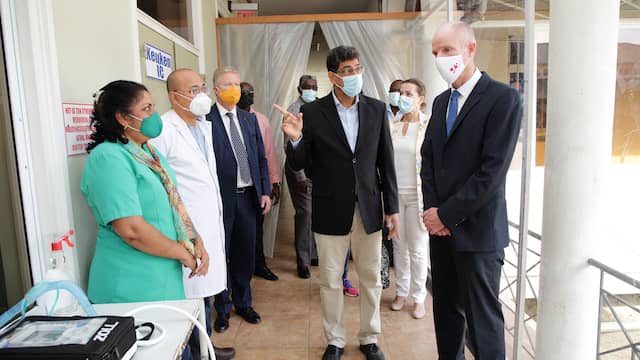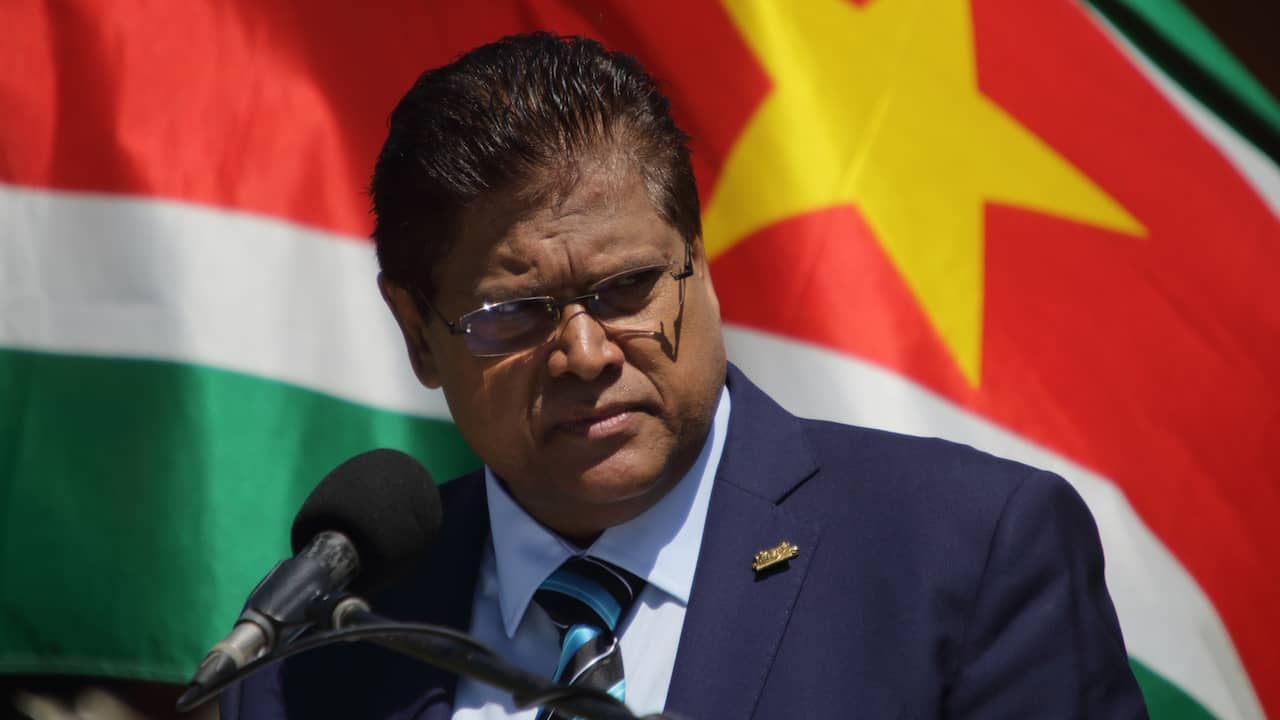Exactly a year ago, Suriname formally established the first corona infection in the country. According to the Numbers 9,012 people have become infected with the corona virus in the past 365 days and 176 people have died from its consequences. Although the number of infections is now steadily low (fifteen positive tests in the last 24 hours), the corona vaccination campaign has stalled due to the critical financial situation.
Chan Santokhi succeeded Desi Bouterse as president of the South American country last year. Bouterse (and his government) left the new president with billions in debt from gigantic foreign loans. The country is rich in oil and gas, but the population does not benefit from that.
Suriname needs money to launch the vaccination campaign. The country, with nearly 600,000 inhabitants, was able to vaccinate 500 healthcare workers at the end of February thanks to a donation of a thousand AstraZeneca vaccines by friendly Barbados. But it has not yet received any self-ordered delivery itself.
Suriname has secured some of the necessary corona vaccines by paying a deposit to the supplier, but that is not enough to be able to vaccinate the entire (adult) population.
For that reason the country founded it COVID-19 Vaccine Fund Suriname (CVFS), with the aim of appealing to the generosity of companies and agencies to donate money towards the purchase of corona vaccines. It is not clear how much money has come in there to date, but there does not seem to be any prospect of a massive vaccination campaign yet.
Donations from friendly countries
In the meantime, the Surinamese government is trying to bring in donations through other friendly nations besides Barbados. For example, it is in talks with India (25 percent of Surinamese have Indian roots) for 50,000 vaccines from AstraZeneca and it may receive 10,000 vaccines through an agreement between the African Union and the Caribbean Community (CARICOM).
In addition, the government in Paramaribo has also set its sights on the COVAX program of the WHO health organization. Last month, Suriname was supposed to receive 20,000 vaccines from the distribution program, but that delivery was delayed.
Suriname intends (when the vaccines have arrived) to be the first to vaccinate all care workers and the elderly in care homes. Indigenous groups are also given priority.
Minister Stef Blok (Foreign Affairs) visited Suriname in November for Independence Day. Then he visited a hospital in the capital Paramaribo, among other things.

Minister Stef Blok (Foreign Affairs) visited Suriname in November for Independence Day. Then he visited a hospital in the capital Paramaribo, among other things.
Photo: ANP
–
–
–
Infections remain limited
While many countries are now in their third corona wave, Suriname will be spared for the time being. Strict rules have been in place for months: air traffic has been stopped and only possible for strictly necessary journeys. Domestic flights are also only available for freight transport or repatriation.
In addition, there has been a curfew for months (on weekdays from 11 p.m. to 5 a.m., on weekends from 9 p.m.) and shops have to close their doors earlier. Last month, the schools reopened for the first time in 2021. Those strict rules may have ensured that the number of infections is now relatively small again.
In October, when it was again possible for Dutch people (with permission, special insurance and a negative corona test) to travel to Suriname, a COVID-19 click line was even introduced. People could call them day and night if they saw that foreigners were not complying with the quarantine measures.
The Dutch Ministry of Foreign Affairs discouraged still travel to Suriname. People who return to the Netherlands from Suriname have to go into home quarantine here.
– .


:strip_exif()/i/2001771745.jpeg?f=fpa)